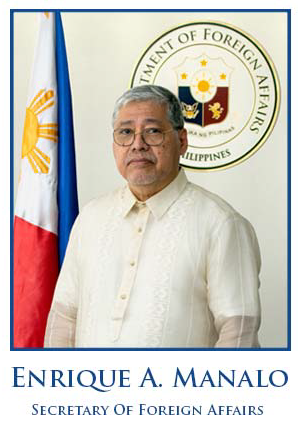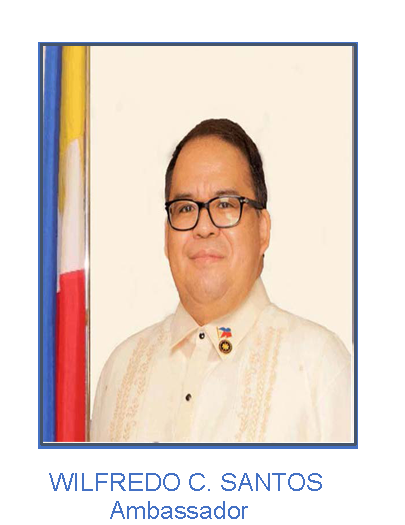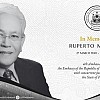Article 7 and Article 10 of the Family Code of the Philippines grants authority to a Consul General, Consul, or Vice Consul of the Republic of the Philippines to serve as solemnizing officer in the marriage between two Filipino citizens. The duly commissioned consular officer is likewise empowered to perform the duties of the local civil registrar in respect to the issuance of the marriage license prior to solemnization and registering the marriage after it has been solemnized.
However, this fact notwithstanding, Filipino citizens may decide to have their marriage ceremony solemnized instead by a duly authorized civil or religious official in their country of residence.
Requirements for Marriage License
The first step that two Filipino citizens must complete in order to contract marriage and have the marriage solemnized by a duly commissioned consular officer is for them to secure a marriage license (or certificate of legal capacity to contract marriage if they plan to get married before a local civil or religious official authorized under the laws of the country they reside in) by submitting the following documents to the Consular Section:
- Philippine passport as proof of Philippine citizenship;
- Birth Certificate issued by the National Statistics Office (NSO) on security paper and authenticated by the Department of Foreign Affairs as proof that both parties are at least eighteen (18) years of age;
- Certificate of No Marriage Record (CENOMAR) also issued by the NSO (with annotation stating that it was issued for the purpose of contracting marriagen abroad) and authenticated by the DFA;
- Two (2) identical 3.5 cm x 4.5 cm photos that comply with the following:
- taken with white background
- taken within last six (6) months
- showing full front view of applicant's face
- applicant in decent attire (with collar and sleeves);
- preferably without glasses (or if with glasses, must have no reflections);
- male applicant should have no earrings
- Additional requirements for special cases
- Court Decision on Annulment for any contracting party who was previously married and whose marriage was subsequently annulled by a Philippine court (copy of court decision with NSO-registered marriage contract containing marginal note regarding annulment and also authenticated by the DFA);
- Death Certificate of deceased spouse for any contracting party who is a widow or widower (must also be NSO-issued and DFA-authenticated).
- Affidavit of Consent executed by the father, mother, surviving parent or guardian, or person having legal charge of any contracting party who is between the ages of eighteen (18) and twenty-one (21), pursuant to Article 14 of the Family Code of the Philippines;
- Affidavit of Parental/Guardian Advice upon the intended marriage executed by any parent or legl guardian of any contracting party who is between the ages of twenty-one (21) and twenty-five (25), pursuant to Article 15 of the Family Code of the Philippines.
Important: If parental consent is not granted or parental advise is unfavorable, the marriage license may only be issued three (3) months after the prescribed ten (10) day publication period of the application for marriage license. Originals of all documents required must be presented by both contracting parties to the Consular Section for inspection during the application for marriage license. Except for the CENOMAR and affidavits executed by a parent or legal guardian (where applicable), all original documents will be returned to the contracting parties once official copies have been made and after the marriage has been solemnized.
Procedures for Obtaining a Marriage License
Once the Consular Section has verified that all documentary requirements have been complied with, the contracting parties can then proceed to apply for a marriage license.
- Contracting parties should complete and execute a sworn application for marriage license and pay the applicable fees;
- The Consular Section shall post the application for marriage license (or certificate of legal capacity to contract marriage) on the bulletin board of the Embassy as required by law for ten (10) consecutive days; and
- After the prescribed publication period has lapsed, the Consular Section shall proceed to issue the marriage license (or certificate of legal capacity to contract marriage).
Note: The marriage license is only valid for a period of one hundred and twenty (120) days and shall be deemed automatically cancelled after this period has lapsed.
Solemnization of Marriage by a Consular Officer
When the marriage license has been issued, the contracting parties are advised to schedule with the Consular Section at least one (1) week in advance the date and time on which they want the Consular Officer to perform the marriage ceremony.
The contracting parties should also submit to the Consular Section at least one (1) week in advance the complete names and residential addresses of those who have confirmed that they would stand as witnesses to the solemnization of their marriage.
When the marriage ceremony has been concluded, the contracting parties shall sign the marriage certificate along with the solemnizing officer and the witnesses. The original marriage certificate and a copy of the marriage license shall be provided to the contracting parties while the original marriage license shall be kept as an official record by the Consular Section.
Solemnization of Marriage by Local Civil or Religious Official
In the event that the contracting parties, both of whom are Filipino citizens, decide to have the marriage solemnized instead by a local civil or religious official who is authorized to perform such function in the country where the marriage is to take place, they are also required to comply with all documentary requirements as indicated above.
However, instead of applying for a marriage license, both contracting parties separately execute anaffidavit of legal capacity to contract marriage, subject to the submission of the documentary requirements as provided above.This affidavit and the documentary requirements enumerated above serve as the basis for the Consular Section to issue the Certificate of Legal Capacity to Contract Marriage (LCCM) that generally enables the party to contract marriage.
Filing of Report of Marriage
It is advisable that newlyweds file a Report of Marriage with the Consular Section right after the marriage ceremony so that this could be sent at once to the Office of the Civil Registrar General/National Statistics Office through the Department of Foreign Affairs.




 In Loving Memory of Ambassador Ruperto M. Dizon
The Philippine Embassy in Amman mourns the passing of Ambassador Ruperto M. Dizon, a distinguished Filipino diplomat whose career was marked by dedication to public service. He was the 4th Philippine Ambassador to the Hashemite Kingdom of Jordan with concurrent jurisdiction over the State of Palestine. He was 85 years old.
Ambassador Dizon...
In Loving Memory of Ambassador Ruperto M. Dizon
The Philippine Embassy in Amman mourns the passing of Ambassador Ruperto M. Dizon, a distinguished Filipino diplomat whose career was marked by dedication to public service. He was the 4th Philippine Ambassador to the Hashemite Kingdom of Jordan with concurrent jurisdiction over the State of Palestine. He was 85 years old.
Ambassador Dizon... 




